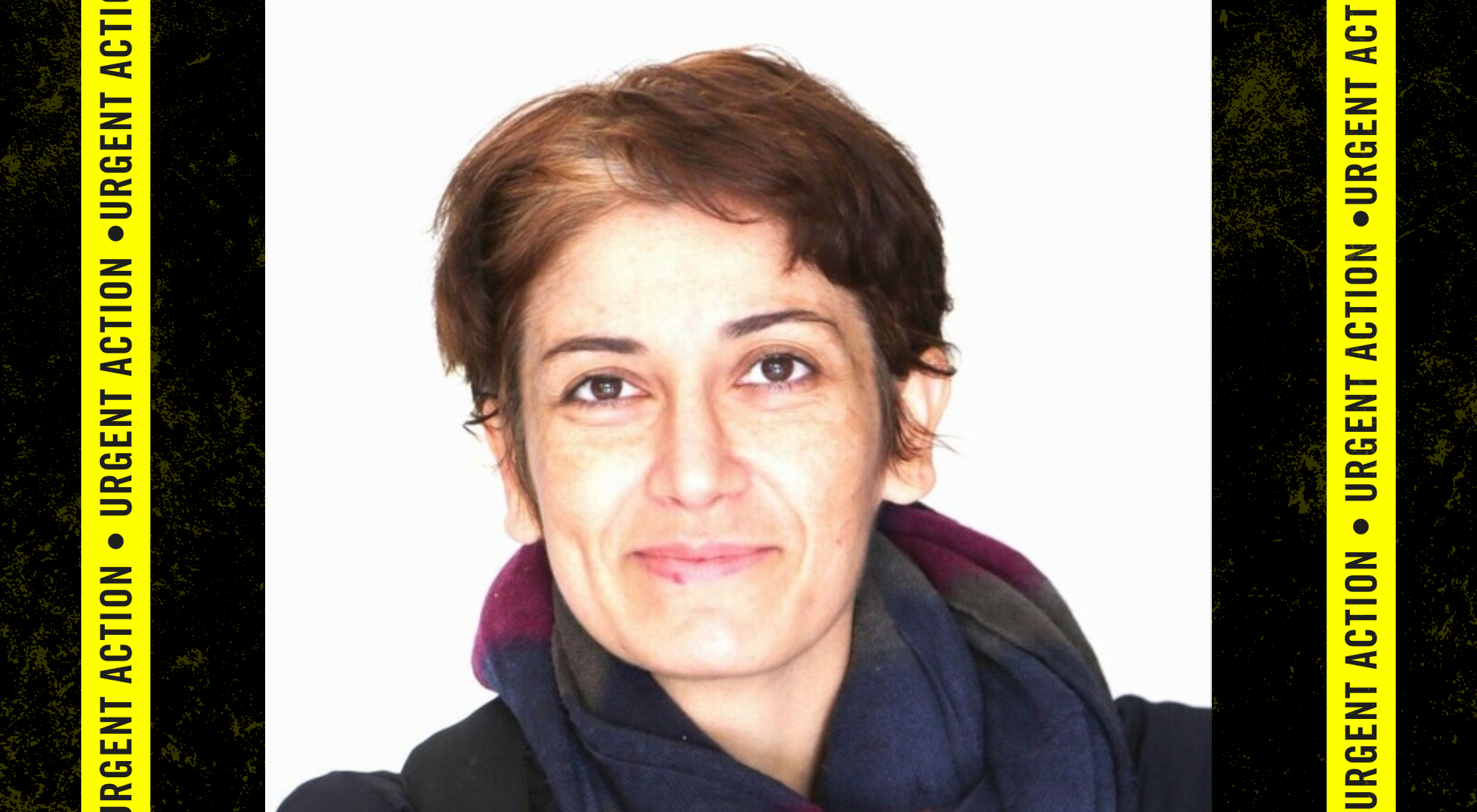Pakhshan Azizi, a Kurdish activist and humanitarian worker from Iran, is at risk of execution. A Revolutionary Court in Tehran sentenced her to death in July 2024 after an unfair trial. Her conviction is based solely on her peaceful efforts to support displaced women and children in northeast Syria. Azizi’s reports of torture and mistreatment in detention have not been investigated. Azizi belongs to Iran’s oppressed Kurdish ethnic minority, making her case even more urgent.
Here’s what you can do:
Write to the Iranian Head of Judiciary urging the government to:
- Halt any plans to execute Pakhshan Azizi, quash her conviction and death sentence, and release her immediately and unconditionally, as she is detained solely for her peaceful humanitarian work and human rights activism.
- Provide her with adequate healthcare and allow her regular visits from family and lawyers until her release.
- Protect her from further torture or ill-treatment and conduct an independent, effective, and impartial investigation into her allegations of torture. Ensure that anyone responsible is held accountable through fair trials.
- Establish an official moratorium on executions with the aim of abolishing the death penalty entirely.
Write to:
Head of judiciary,
Gholamhossein Mohseni Ejei,
c/o Embassy of Iran to the European Union
Avenue Franklin Roosevelt No. 15,
1050 Bruxelles, Belgium
Salutation: Dear Mr. Gholamhossein Mohseni Ejei,
Email: iranemb.bru@mfa.gov.ir
Instagram: @ejeii.ir
***You could also copy the embassy of Iran in Washington via this email address: requests@daftar.org
Arrest and unfair trial of Pakhshan Azizi
On August 4, 2023, agents from the Ministry of Intelligence arrested Pakhshan Azizi at her family home in Tehran. Several family members, including her father, Aziz Azizi, and sister, Pashang Azizi, were also detained and transferred to Evin Prison.
About two weeks later, her family members were released on bail. However, they were tried alongside Pakhshan Azizi by Branch 26 of the Revolutionary Court and sentenced to one to two years in prison on charges, including “aiding a criminal to evade trial.” In September 2024, these sentences were upheld on appeal.
Pakhshan Azizi’s humanitarian work & retaliation in prison
After Pakhshan Azizi’s sentencing in July 2024, her lawyer emphasized in an interview with Iranian media that she had never been involved in armed operations. Instead, she had worked as a social worker in northeast Syria since 2015, supporting refugees and victims of the Islamic State (IS). Her peaceful activism was acknowledged even in the court’s verdict, which made no reference to any armed activities.
While imprisoned, Azizi staged several hunger strikes to protest the treatment of other detainees. In May 2024, she protested the transfer of Kurdish activist Verisheh (Wrisha) Moradi to a restricted prison section. Azizi ended her hunger strike when Moradi was returned to the women’s ward. In retaliation for her activism, authorities opened new cases against her and restricted her family contact.
One case, filed in August 2024, accused her of “rioting in prison” in connection with protests over Iran’s presidential elections. From July to mid-September 2024, she was denied all family contact. In September, a second case was opened after Azizi participated in a prison protest with Narges Mohammadi against the increased use of the death penalty in Iran.
Escalation of executions and death sentences
Following the “Woman, Life, Freedom” uprising, Iranian authorities intensified their use of the death penalty to suppress dissent, particularly targeting ethnic minorities such as Kurds and Baluchis. On January 29, 2024, four Kurdish dissidents—Pejman Fatehi, Vafa Azarbar, Mohammad Faramarzi, and Mohsen Mazloum—were executed following unfair trials. The men had been forcibly disappeared since their arrests in July 2022, and their families faced harassment.
Women activists have also been targeted. In June 2024, a Revolutionary Court sentenced human rights defender Sharifeh Mohammadi to death for peaceful activism. Kurdish activist Verisheh (Wrisha) Moradi also faced trial on similar charges. Iran executed at least 853 people in 2023, with ethnic Baluchis—who make up only 5% of the population—accounting for 20% of the total executions. The trend of politically motivated executions has continued in 2024.
Discrimination and marginalization of ethnic minorities
Ethnic minorities in Iran, including Kurds, face systemic discrimination, limiting their access to education, jobs, housing, and political representation. Regions populated by minorities suffer from chronic underinvestment, deepening poverty and exclusion. In 2023, Iranian security forces killed dozens of unarmed Kurdish cross-border couriers (kulbars) with impunity.
Amnesty International has repeatedly documented how Kurdish individuals are often arrested arbitrarily, accused of supporting Kurdish political parties, without credible evidence of wrongdoing. These discriminatory practices and human rights abuses reflect the Iranian state’s ongoing repression of its ethnic minorities.
























